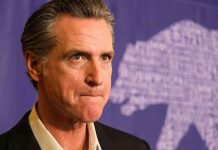
As trade tensions simmer between Canada and the United States, Canada seeks a new direction while reassessing longstanding economic ties.
Key Takeaways
- Canadian Prime Minister Mark Carney announced a redefinition of economic and security ties with the U.S. due to new tariffs.
- Trump’s 25% tariff on car and car parts imports impacts global supply chains and prices.
- Canada plans strategic countermeasures with minimal impact domestically.
- Carney called for a meeting to address United States tariffs, with a focus on economic stability and independence.
- Global leaders condemned the tariffs, warning of widespread economic consequences.
Canada’s Shift in U.S. Relations
Canadian Prime Minister Mark Carney announced the end of deep-seated economic and security ties with the United States as President Donald Trump’s new tariffs threaten trade relations. Trump’s tariffs, effective April 3, aim to impose a 25% duty on imported cars and parts, predicated to broadly affect automotive industries. The move signals a reformation of Canada-U.S. trade agreements, with Carney asserting the need for Canada to establish independent trade policies.
Carney condemned these tariffs as violations of existing trade agreements, pledging retaliatory measures designed to impact the United States the most. Key Canadian leaders, along with provincial premiers, are strategizing on countermeasure implementations. The decision reaffirms Canada’s resolve to maintain economic stability amidst these challenges, emphasizing self-reliance and strategic international partnerships.
Global Response and Implications
Trump’s decision to impose tariffs has alarmed global stakeholders. German Chancellor Olaf Scholz and French President Emmanuel Macron expressed concerns over economic repercussions, emphasizing the disruption of value chains and inflationary pressures. The European Commission and leaders in Asia condemned the tariffs, highlighting it as counterproductive for global economies.
“They disrupt value chains, create an inflationary effect, and destroy jobs. So it’s not good for the U.S. or European economies,” said Macron.
Similarly, South Korea is preparing an emergency response to the tariffs, countering disruptions potentially affecting their auto industry. The international community’s unified stance signals the potential for broader economic shifts within international markets as countries recalibrate trade strategies in light of U.S. tariff policies.
Future Negotiations and Canada’s Position
Prime Minister Carney emphasized strengthening domestic resilience through policy changes promoting investment and reducing bureaucratic hindrances. Recognizing the critical nature of automotive and manufacturing sectors to the Canadian economy, the government is focused on ensuring sector stability.
“What is clear is that we as Canadians have agency. We have power. We are masters in our own home,” said Carney.
With a looming general election in Canada, political leaders are vocal about national policy directions in response to U.S. tariffs. Carney’s engagement with political and business leaders, along with a possible forthcoming direct conversation with Trump, underscores evolving dynamics in diplomatic and trade negotiations.





